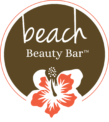Gut health, probiotics and acne…is there a connection? It’s not shocking that diet plays a huge role in how well you feel, but it greatly impacts how your skin looks too. Anything that causes a spike in blood sugar can increase inflammation and insulin levels, therefore leading to pimples and excess oil.
Improved gut health involves tackling any issues from the inside out. The gut-skin axis is a powerful thing so rather than addressing topical skincare solutions, it’s important to first turn your attention inwards. Healthy digestion you can impact everything from your mood and metabolism to your complexion.
But what does your digestive system have to do with your acne?
As it turns out, quite a bit. The integrity of your GI tract is related to many infamous acne triggers.
Inflammation in the gut
When your digestive system becomes compromised and allows bad bacteria to run rampant, it triggers a response from your immune system: inflammation. Acne is already an inflammatory condition, so increasing your inflammatory response is the opposite of helpful. Extra swelling will just make breakouts redder, puffier, and slower to purge and heal.
Pro tips for a clear complexion*
- Limit inflammatory foods: Certain foods can interact poorly with the natural environment in your gut and should be consumed in moderation.
- Gluten: Gluten-heavy foods like bread and pasta contain a protein called zonulin, which may contribute to the development of leaky gut.
- Refined carbs and sugar: Can feed harmful bacteria in the GI tract, causing an imbalance.
- Dairy: Contains difficult-to-digest proteins that can cause digestive distress and damage.
- High-fat foods: Can damage good bacteria and worsen gut permeability (hi, leaky gut), allowing toxins to escape from your intestines.
Insulin Resistance in the Body
A damaged GI tract can also allow the escape of toxins that contribute to insulin resistance. This means more insulin floods your system when you eat. Those high insulin levels can increase your production of sebum and skin cells — two significant causes of acne.
Stress and Acne
First of all, digestive problems are inherently stressful. They’re painful and inconvenient. Then your unhealthy gut starts messing with your mood and you’re feeling stressed without even knowing why. All these stressors increase hormones like cortisol and CRH.
And what do those hormones do? That’s right. Like insulin, they stimulate your production of sebum and skin cells – setting the stage for more acne breakouts.
There’s no way to completely remove stress from our lives, but we can definitely bring it down to a minimum. Deep breathing, yoga, spending time in nature, prayer, and meditation are just a few ideas for nurturing a life with lower stress levels.
What Are Probiotics?
Probiotics are ingredients that promote the growth of healthy bacteria in our bodies. True probiotics are live organisms that can be found in fermented foods like yogurt, kimchi or high-quality supplements.
Essentially, probiotics are living, gut-friendly bacteria that benefit our overall well-being by regulating our digestion, fighting potential pathogens or environmental damage, and even strengthening our immune system.
Specific inflammation-related skin disorders (acne, rosacea, and eczema) can flare up when something throws our gut’s balance of healthy and unhealthy bacteria off-kilter. An unbalanced bacteria ratio damages our intestinal lining, which then invites irritating substances to make their way into our bloodstream.
Benefits of Probiotics for Acne
Probiotics offer both internal and external benefits, and one method of use may yield better results than another for each person.
Calms internal inflammation: Taking probiotics is the best bet to keep the lining of your digestive tract smooth and robust. The theory behind the use of probiotics for acne is that it normalizes the balance of healthy bacteria on the skin to reduce inflammation.
Protects skin from environmental damage: Probiotics create ‘holes’ in bad bacteria and kill them. Similar to the way antibiotics work in the treatment of acne and rosacea, probiotics helps fight harmful bugs from triggering that inflammation in the first place.
Strengthens skin’s natural moisture barrier: If you’ve scrubbed too vigorously with cleansers and other products, probiotics help restore the skin’s natural barrier function, which is vital to banishing redness, sensitivity, breakouts, and irritation.
What are the Best Probiotics for Acne?
There are mixed opinions on what the best probiotics are to help treat acne. We recommend taking probiotics with (at least) the following probiotic strains (live cultures):
- Lactobacillus acidophilus
- Enterococcus faecalis
- Lactobacillus plantarum
- Lactobacillus paracasei
- Streptococcus salivarius
In addition to probiotic supplements, you can also increase your consumption of foods with naturally occurring probiotics such as yogurt (non-sweetened!), sauerkraut, kombucha, etc.
The Bottom Line
The skin is a great barometer for what’s going on inside the gut. With changes like adding a probiotic to your daily routine, you can make real progress to heal your skin from the inside-out. Always talk to your doctor first before going on any probiotics; but in the meantime don’t forget to also care for your skin from the outside-in! Schedule your initial consolation today to get started on your clear skin journey.
Cheers to clear!
Rene



